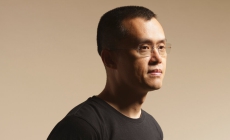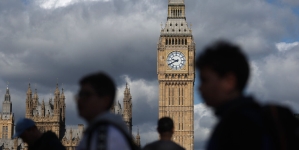-
Binance Founder Changpeng Zhao Pleads Guilty to Money Laundering Violations - November 21, 2023
-
A portion of Mulholland Drive, damaged by mudslides in winter storms, reopens - May 26, 2024
-
‘Maybe You Don’t Want to Win’ - May 26, 2024
-
Donald Trump Putting Law Enforcement in Danger: Attorney - May 25, 2024
-
Avoid the waters of these 5 L.A. County beaches this holiday weekend, public health officials say - May 25, 2024
-
Bawdy Comedy ‘Anora’ Wins Palme d’Or at Cannes Film Festival - May 25, 2024
-
Map Shows Heat Wave Zone Spread Into Five New States - May 25, 2024
-
Azusa police arrest suspected slingshot-wielding vandal - May 25, 2024
-
Donald Trump Hammers Judge Ahead of Jury Instructions - May 25, 2024
-
Sometimes U.S. and U.K. Politics Seem in Lock Step. Not This Year. - May 25, 2024
Binance Founder Changpeng Zhao Pleads Guilty to Money Laundering Violations
Changpeng Zhao, the founder of Binance, the largest cryptocurrency exchange in the world, agreed to plead guilty to money laundering violations, according to court papers made public on Tuesday, a stunning blow to the most powerful and influential figure in the global crypto industry.
Binance itself also agreed to plead guilty and pay $4.3 billion in fines and restitution, according to the documents, filed in federal court in Seattle.
As part of his guilty plea, Mr. Zhao agreed to pay a $50 million fine and will also step down from his role as chief executive of the company. Binance, as part of its plea deal with federal prosecutors, will accept appointment of a monitor, and Mr. Zhao is barred from any involvement in Binance’s business until three years after the monitor is appointed.
The court papers, which are dated Nov. 20, said that criminal charging documents were filed by federal prosecutors against both Binance and Mr. Zhao on Nov. 14. Mr. Zhao’s lawyers could not be reached for comment.
The court documents described a wide-ranging effort by Mr. Zhao and other senior Binance employees to avoid laws that require them to abstain from transacting with people barred from the American financial system because of economic sanctions, and register any U.S.-based businesses properly with regulators. Customers from Iran, Cuba and Syria — all of which face sanctions — were able to access the Binance platform.
In addition to the outlawed foreign transactions, Binance did business with firms based in the United States even though it was not supposed to have any U.S. customers on its Binance.com platform. Instead, a different platform, Binance.US, which Mr. Zhao also owned, was required to handle the business and abide by U.S. anti-money laundering laws. But Mr. Zhao and other Binance employees believed it would be better for the main cryptocurrency exchange to handle big U.S. customers, the court filings state.
According to the filings, Mr. Zhao, widely known as C.Z., personally sought to hide Binance’s dealings with large U.S. customers — who were referred to as VIPs and handled by a special manager — to “have the U.S. supervision agencies not cause any troubles.”
The filing cited a June 2019 call during which Mr. Zhao advised other Binance employees to talk to U.S.-based VIP customers using methods like phone calls that would leave “no trace” of the interactions.
For the relatively young and fast-growing crypto world, Tuesday’s proceedings were a monumental development, given Binance’s global reach and Mr. Zhao’s prominent role as a leader in the industry. At times, Binance has processed two-thirds of all digital currency trades, making it a vital power broker and intermediary in the crypto world.
Long believed to be the richest man in crypto, Mr. Zhao has often been cagey about his whereabouts, even as he has amassed more than 8.5 million followers on X, the platform formerly known as Twitter. For a time earlier this year, he was in the United Arab Emirates, which does not have an extradition agreement with the United States.
Mr. Zhao’s lawyers from Latham & Watkins were not immediately available for comment.
Mr. Zhao’s guilty plea completed something of a one-two punch by the Justice Department. Earlier this month, the crypto entrepreneur Sam Bankman-Fried was convicted of fraud at a criminal trial arising from the collapse of his FTX crypto exchange.
Since the implosion of FTX a year ago, federal authorities have criminally charged a procession of crypto executives, and the Securities and Exchange Commission has filed lawsuits against some of the largest companies in the industry, including Coinbase, the publicly traded American exchange. On Monday, the S.E.C. sued Kraken, another crypto exchange, accusing it of operating without proper registration and commingling customer deposits with its own corporate assets.
This is a developing story. Check back for updates.
Alan Rappeportcontributed reporting.
































